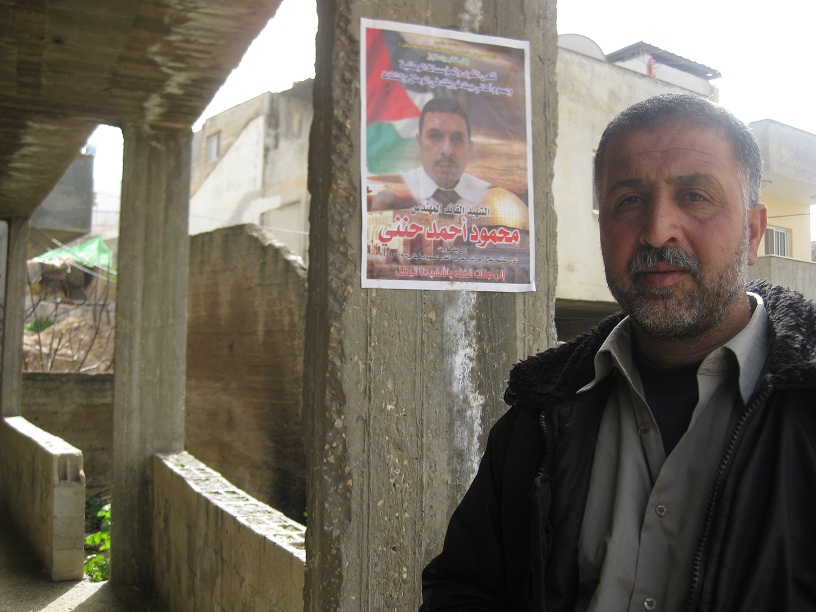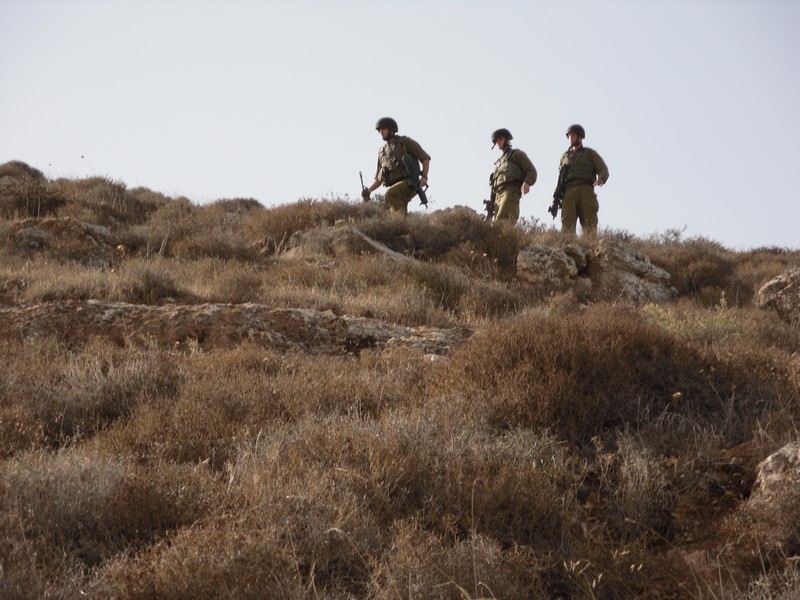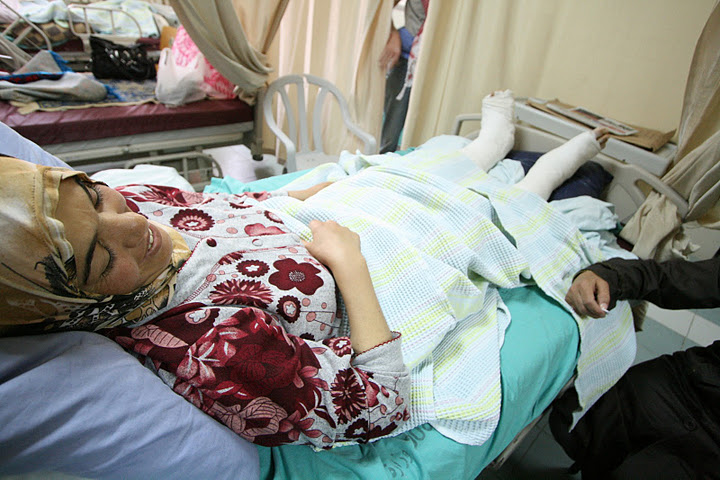Tag: Beit Furik
-
Beit Furik, Nablus: Family unable to attend funeral for son killed in recent Gaza air strikes
by Jonas Weber 13 March 2012 | International Solidarity Movement, West Bank “We called him Nassr, but I think his real name was Mahmoud,” says Ahmed while we were on the bus from the Beit Furik municipality building. Outside the bus window, the walls of the little town just outside of Nablus are plastered with…
-
Israeli military and Zionists ambush olive harvest in Beit Furik
21 October 2011 | International Solidarity Movement, West Bank The Palestinian family El Jobor was unsuccessful in their attempt to harvest olives today as they met resistance from Jewish settlers and Israeli soldiers originating out of the Itamar settlement. Accompanied by ISM volunteers the family climbed the hillside above Beit Furik and marched through the olive…
-
Woman flees harvest to escape violent settlers and wild boars
20 October 2011 | International Solidarity Movement, West Bank Early Thursday morning, a Palestinian woman in Beit Furik was picking olives when a settler began to chase her and set loose wild hogs to chase after her, causing her to fall and suffer broken bones in both her legs. Muhaya Khatatba was in her olive…



